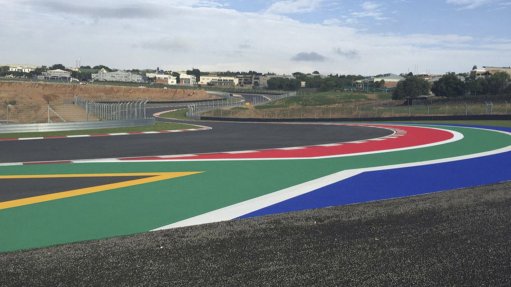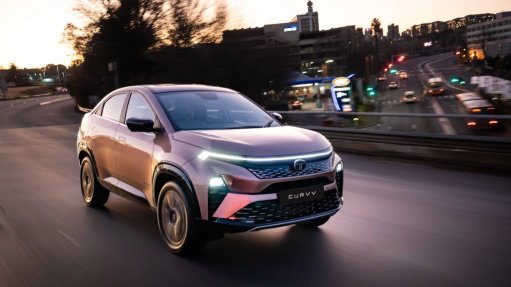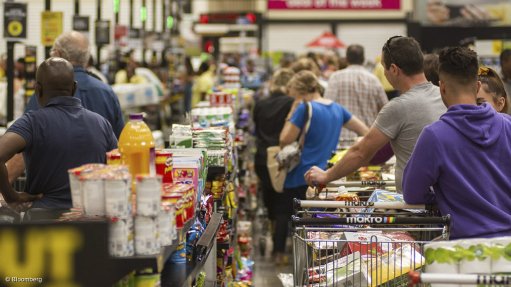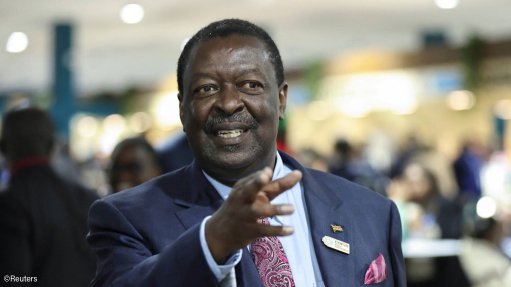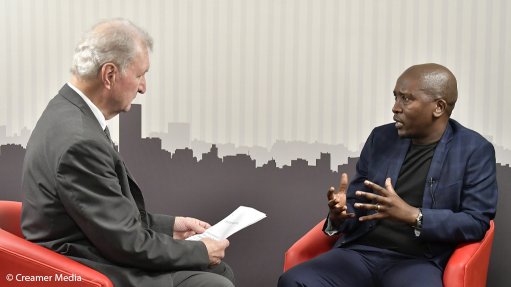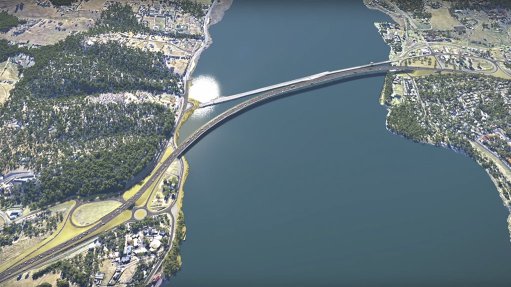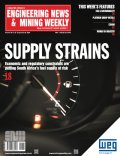Smart mobility in the South African context
This article has been supplied.
By Prof Dilip Kumar Das and Prof Mohamed Mostafa
Many countries across the world are actively seeking to transform their cities into smart cities, or to establish new ones. At the core of this transformation, smart mobility emerges as a critical catalyst in refining the management of city service delivery and enhancing city flows. More than merely technological advancement, smart mobility offers an opportunity to address challenges faced by society, promote sustainability and positively influence various facets of contemporary society. In this context, the significance of smart mobility for fostering a developed and sustainable South African society cannot be overstated.
Conceptualising smart mobility in South Africa
Smart mobility encompasses logistics and intelligent systems within transportation networks, aiming to enhance traffic flow and resident mobility. It involves the seamless integration of various transportation modes, including surface, non-motorised, air and water-based options for both goods and people, enabled by information and communication technology (ICT).
Smart mobility not only facilitates efficient transportation through technology, but also contributes to a city's environmental sustainability.
Intelligent transport systems (ITS) play a key role in achieving smart mobility, as does improving local accessibility through optimising the public transportation infrastructure. These help with real-time decision-making, reduce pollution, alleviate traffic congestion and delays, enhance safety, increase speed and reduce costs.
In the context of South African cities, smart mobility involves creating an inclusive and equitable transportation system using ICT. This system should seamlessly connect public transport, private options like rideshares and taxis, and non-motorised transport (NMT), improving traffic flow and safety. Importantly, to address the inequalities of spatial planning policies of the past, it should also be accessible to all, emphasising inclusivity and equity.
The significance of smart mobility
The concept of smart cities originated in the early 1970s but really gained momentum in the 21st century. While the concepts of smart cities and smart mobility are relatively new, and in some African countries the discussion around smart cities has gained prominence in the last decade, with countries such as Rwanda and Kenya taking steps to create smart cities. For example, Kigali leverages the Internet of Things (IoT) to proffer innovative solutions to urban challenges, such as reinforced infrastructure and cutting-edge technology deployment. Similarly, Konza is emerging as a beacon of modernity, with a foundation rooted in intelligent infrastructure that uses data to empower urban services such as traffic management.
In South Africa, the smart mobility concept was introduced in the form of the Freeway Management System (FMS) by the South African National Road Agency Limited (SANRAL) almost two decades ago, in 2005. Furthermore, the SANRAL App was developed for facilitating live traffic maps, personalised route planning through a single integrated ticketing system, toll fare calculation, a seamless parking system and online payment options. Further efforts include stakeholder integration and coordination through common platforms to reinforce the Road Incident Management Systems (RIMS) and the introduction of self-service terminals to make account management easy and accessible.
Barriers to and potential for smart mobility
Some of the main barriers to smart mobility in South Africa include the absence of an integrated transportation system due to financial constraints, limited municipal investments in infrastructure, a scarcity of non-motorised transport options, economic disparities that influence travel choices, and demographic and socio-cultural factors that contribute to a division between car-dependent individuals and those reliant on public transportation. These challenges highlight the complex dynamics involved in the adoption of smart mobility in the country and the need for comprehensive and bespoke solutions that consider economic, social and infrastructural factors to create an inclusive and sustainable mobility system.
Despite these challenges, the widespread use of ICT and the integration of ITS in transportation systems contribute to the potential of smart mobility. ICT is prevalent in some larger South African cities, with examples like SANRAL’s Freeway Management System (FMS) installed in Johannesburg, Durban and Cape Town, and soon to be introduced in Gqeberha. Efforts to improve public transportation use smart technology and the Account-Based Ticketing concept to optimise the use of existing infrastructure and provide for users’ needs. Together, these initiatives indicate a promising future for smart mobility in the region.
Reimagining and advancing urban development
Smart mobility significantly changes spatial structure, transportation systems and societal norms.
From a transportation systems perspective, embracing smart mobility requires the development of intelligent/smart transportation infrastructure, establishing multimodal systems, integrating NMT and effective information management systems. These changes are integral to changing the transportation landscape.
Simultaneously, spatial transformation will be necessitated by the demands of smart mobility. These include enhancing infrastructure efficiency, improving connectivity, shifting modal preferences and facilitating seamless inter- and intra-city travel. This might result in decentralising activities and creating new centres of activity.
The key question revolves around understanding the anticipated transformations and how to encourage and adapt to them.
Addressing the challenges posed by smart mobility, as well as the consequent transformations in transportation and spatial organisation, is of paramount importance for the successful adoption of smart mobility and the development of smart cities. It is also imperative to integrate smart solutions into sustainability goals in the process.
Conclusion
Smart mobility is one facet of smart cities. Establishing a smart city would require cooperation and coordination between all facets of smart offerings. Smart mobility cannot be considered in isolation of other solutions; however, it has become the key driver and catalyst for encouraging other intelligent solutions.
Predictably, smart mobility is already intertwined into our society in the form of interoperable toll solutions, freeway management systems and average speed over distance (ASOD) applications and is poised to promote more advanced technologies in the foreseeable future, with significant new improvements already in development. Consequently, government must confront the challenges head-on, transforming them into opportunities to forge a sustainable and smart transportation system. If made, this endeavour holds the promise to contribute significantly to the overarching sustainability of human habitats.
The Department of Transport, operating at both the national and provincial levels, needs to shift the narrative in municipalities and provinces to embrace technology solutions to enable better management and governance models. Policies and strategies should incorporate smart solutions and require officials to implement them. Moreover, SANRAL, as the foremost road agency in the country, should continue to play a pivotal leadership role as the pioneers of such technology. SANRAL has already taken the lead in advancing smart mobility by implementing certain smart solutions and driving research to generate context-specific knowledge and technology. It must continue on this trajectory of transforming the theoretical expertise and knowledge into practical applications that will contribute tangibly to the evolution of smart mobility practices.
Comments
Press Office
Announcements
What's On
Subscribe to improve your user experience...
Option 1 (equivalent of R125 a month):
Receive a weekly copy of Creamer Media's Engineering News & Mining Weekly magazine
(print copy for those in South Africa and e-magazine for those outside of South Africa)
Receive daily email newsletters
Access to full search results
Access archive of magazine back copies
Access to Projects in Progress
Access to ONE Research Report of your choice in PDF format
Option 2 (equivalent of R375 a month):
All benefits from Option 1
PLUS
Access to Creamer Media's Research Channel Africa for ALL Research Reports, in PDF format, on various industrial and mining sectors
including Electricity; Water; Energy Transition; Hydrogen; Roads, Rail and Ports; Coal; Gold; Platinum; Battery Metals; etc.
Already a subscriber?
Forgotten your password?
Receive weekly copy of Creamer Media's Engineering News & Mining Weekly magazine (print copy for those in South Africa and e-magazine for those outside of South Africa)
➕
Recieve daily email newsletters
➕
Access to full search results
➕
Access archive of magazine back copies
➕
Access to Projects in Progress
➕
Access to ONE Research Report of your choice in PDF format
RESEARCH CHANNEL AFRICA
R4500 (equivalent of R375 a month)
SUBSCRIBEAll benefits from Option 1
➕
Access to Creamer Media's Research Channel Africa for ALL Research Reports on various industrial and mining sectors, in PDF format, including on:
Electricity
➕
Water
➕
Energy Transition
➕
Hydrogen
➕
Roads, Rail and Ports
➕
Coal
➕
Gold
➕
Platinum
➕
Battery Metals
➕
etc.
Receive all benefits from Option 1 or Option 2 delivered to numerous people at your company
➕
Multiple User names and Passwords for simultaneous log-ins
➕
Intranet integration access to all in your organisation












